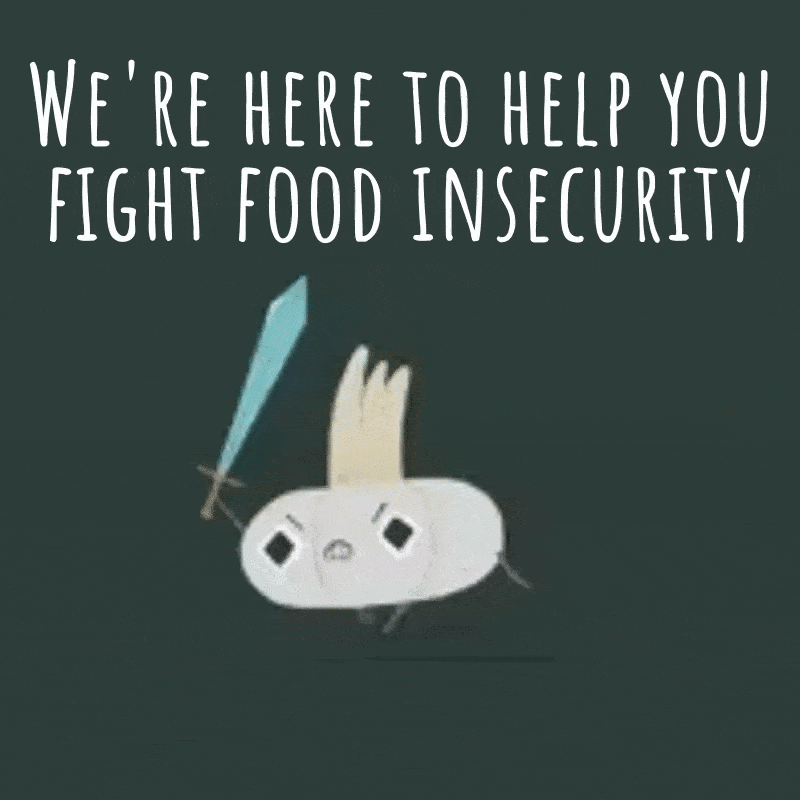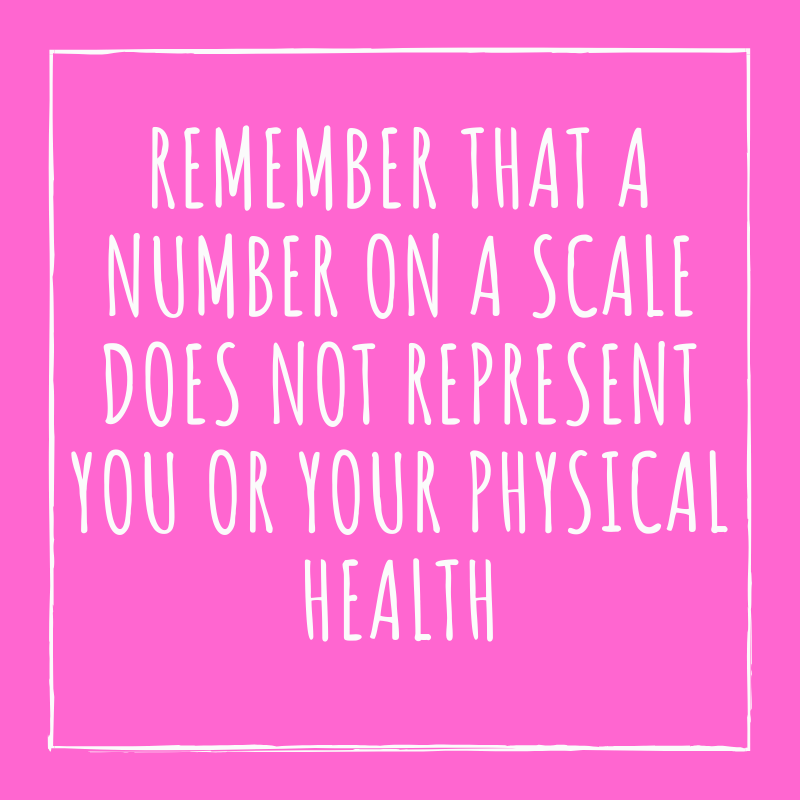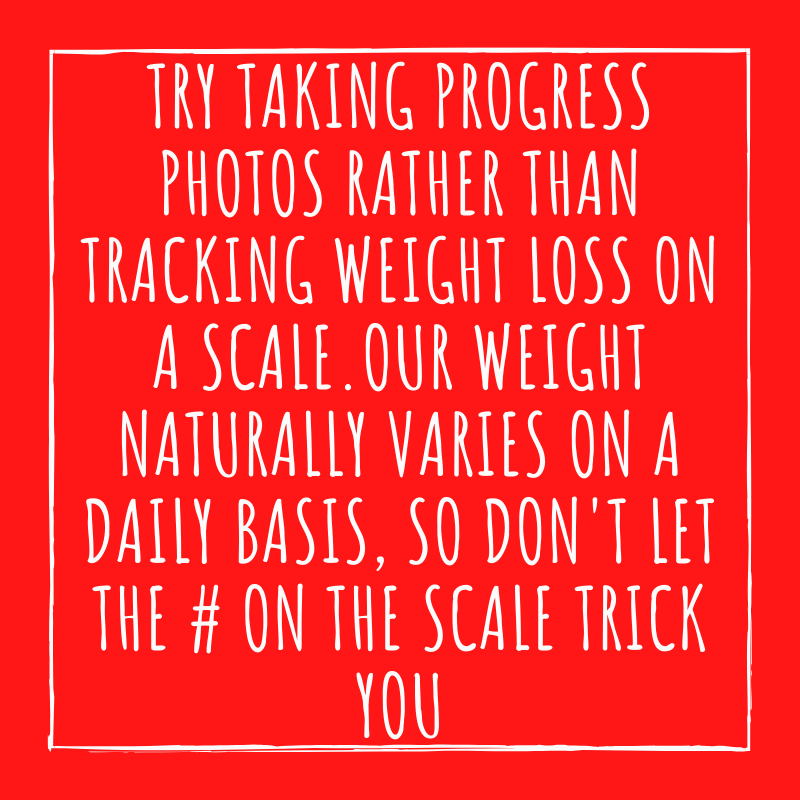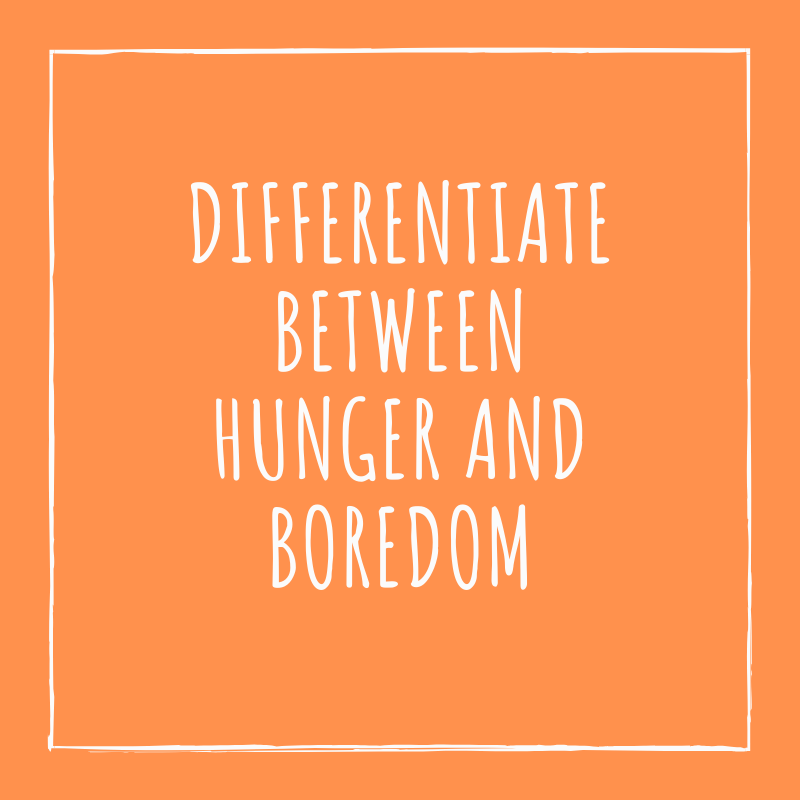How Can You Decrease Food Related Stress During COVID-19?
Devon Mancini, Student Curator
Food: A Source of Life and a Source of Insecurity
Now that we are seeking to isolate ourselves for the sake of our health and the health of our loved ones, food can become a source of stress and anxiety. Going to the grocery store to buy essential products or ordering takeout from our favorite restaurants means potentially becoming exposed to a virus we still know little about. As unemployment rises, more and more people are losing their ability to provide food for themselves and their families. Stress, anxiety, and depression can also impact the way that we consume food and make decisions about our everyday diet. Food insecurity is a growing concern for Americans, but there are things that you can do to ease your anxiety and keep yourself safe. This guide is here to show you tips for safe grocery shopping, shopping for nutritious foods on a budget, healthy cooking, and how to reduce other causes of anxiety that relate to food.


First Things First: A Grocery Store Survival Guide
Don't let the grocery store become a source of fear, anxiety, or stress! There are many ways to stay safe and reduce exposure to COVID-19 while doing your necessary shopping, and this guide is here to tell you how:
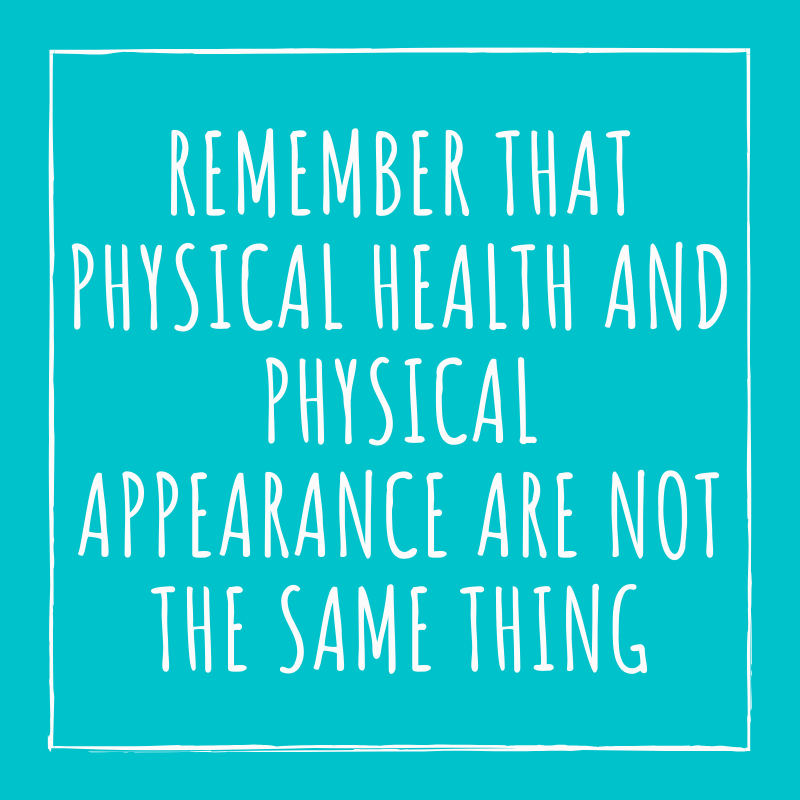

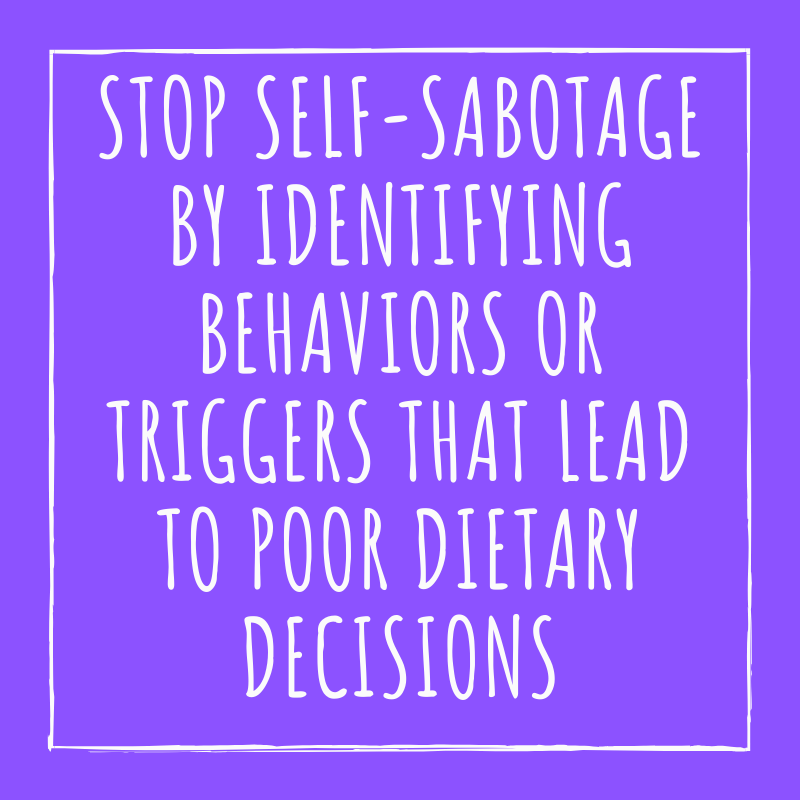
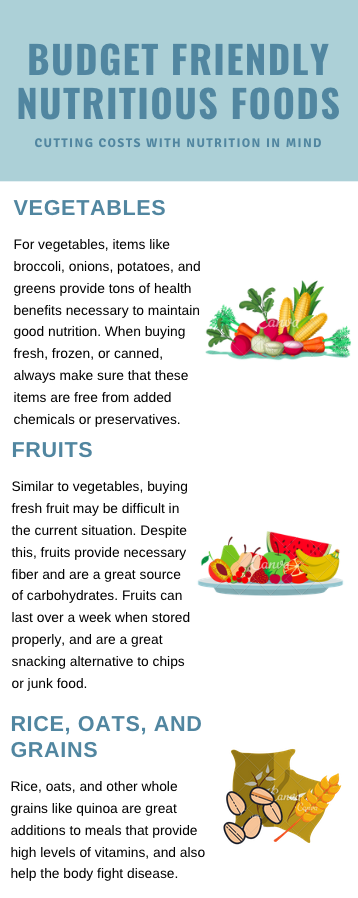
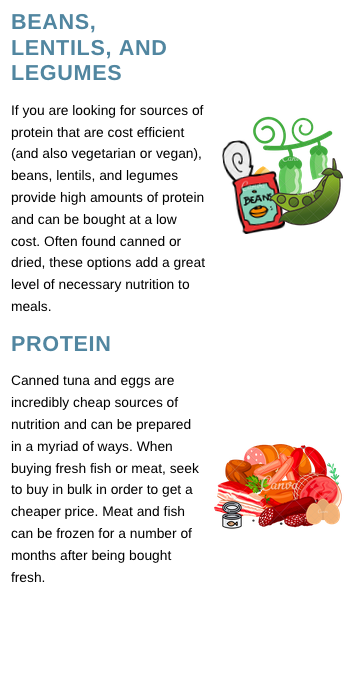
Cutting Costs With Nutrition in Mind
You shouldn't have to give up healthy and nutritional dieting habits because of economic status.
If you're like me, saving money right now has become a top priority. With bills and other expenses taking priority, the grocery budget is the first thing I look to cut. As we seek affordability, we often give up nutrition and health in exchange. But budgeting doesn't mean you have to give up nutrition. Here are some examples of how to keep your grocery budget while buying nutritious foods.
Budgeting
Maintaining a budget requires hard work and dedication. For many (especially me), resisting impulse buying is key to saving money while grocery shopping. Julie Jaggernath, in an article for myMoneyCoach, writes some great tips for staying the course while at the store. Here are some key points:
- Preplan your meals for the week and make a strict list of what you will need so that you don't stray while at the store. Many stores even offer downloadable apps where you can track how much your final bill will cost.
- Some people prefer not to shop from lists, which is perfectly fine! Instead, set a desired spending amount before your shopping trip. As you shop and keep track of the items in your cart, prioritize which items you need for the week.
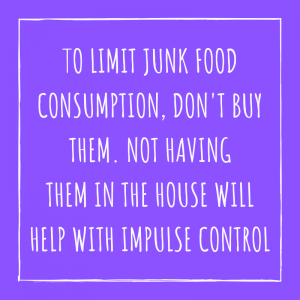
- It is more cost efficient to buy things that are not individually packaged and pack them in snack baggies yourself at home.
- When it comes to bulk items, there is often a cost savings for buying, for example, chicken broth in a six pack compared to six individual cartons.
- Do not buy in bulk if the product will end up wasted. Always looks for the best possible deals, but do not buy unnecessary items just because they are on sale or at a cheaper price if bought in bulk.
- While things like coupons are extremely beneficial, only use coupons for items that you actually need.
Additional Resources
Government Assistance
Want to help? If you want to help someone who is currently experiencing food insecurity, here are a list of organizations working to fight this cause:
45+ Organizations Helping Restaurants, Workers, and Farmers Fight COVID-19
Here are some more articles that provide tips for saving money at the grocery store:
My Top 10 Tips for Creating a Grocery Budget (and Sticking to It)
How to Save Money on Groceries
The Best Budget Grocery Shopping Advice from People Who Never Overspend on Food
If you or someone you know is currently suffering from an eating disorder, or has recently relapsed due to the outbreak of COVID-19, please visit the National Eating Disorder Association's website or contact their hotline. (800) 931-2237
